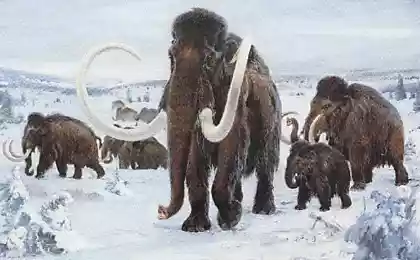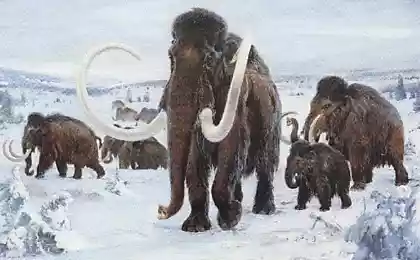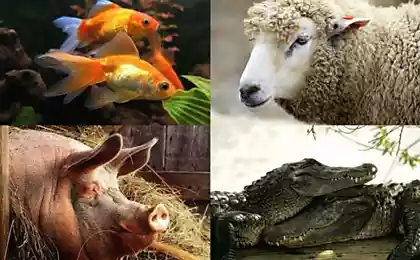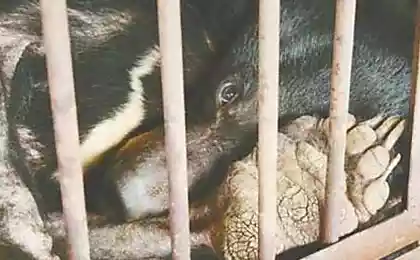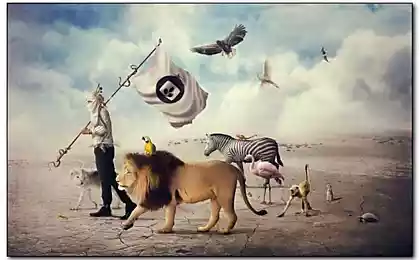1117
Destruction of man
Every day, billions of animals are forced to fight with the weather conditions, hunger and epidemics. But the most terrible threat to wildlife in the continents still remains man. In continuation of this post I propose learn only about 10 of the hundreds of species that were completely destroyed by man ...
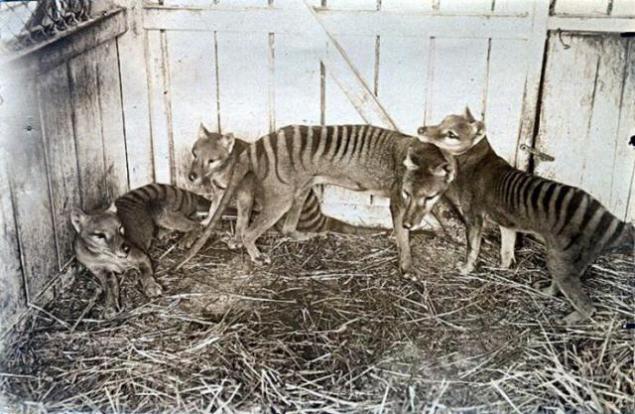
Tasmanian wolf
Tasmanian or marsupial wolf, also known as tilatsin, resided in the territory of mainland Australia and the island of New Guinea. The first of its habitat has undergone change after to New Guinea people were transported dingo. Last Thylacine ousted from his normal habitat, and today he was "moved" to live on the island of Tasmania.
Local Australian farmers considered it a potential threat to sheep and therefore mercilessly exterminating wolves, without attaching any importance to where they saw him and whether he is a threat to others.
"Many believe that the cruel and unjustified destruction of wolves could not lead to the extinction of a species, and blame it on some uncharted disease that supposedly wiped out the entire population tilatsinov" - says Thomas Prowse from the Australian University of Adelaide. < br /> However, scientists have for a long time and thoroughly studied this issue, using different models, and found that the destruction of the Tasmanian wolves are responsible solely man.
It is believed that the last Thylacine was killed May 13, 1930, and in 1936 in one of the Australia Zoo died of old age last Thylacine in captivity.
Year of extinction: 1936
Woolly Mammoth
It is believed that this type of mammoths first appeared in Siberia, about 300-250 thousand years ago, and gradually spread to Europe and North America. Dimensions mammoths were not quite so huge, according to most not too familiar with the history of the people: they were only a little more than modern elephants.
Mammoths lived group, led by the eldest female, and constantly moved from place to place as an adult mammoth require about 180 kg of food daily. What is - and this is obvious - does not imply marking time in one place.
Completely woolly mammoth disappeared about 10,000 years ago. Although there are many theories of why they became extinct (loss of genetic diversity, climate change, outbreak, etc.), advanced research increasingly inclined to believe that the final blow to this type caused mammoth was a human hand.
Time extinction: 10 000 years ago
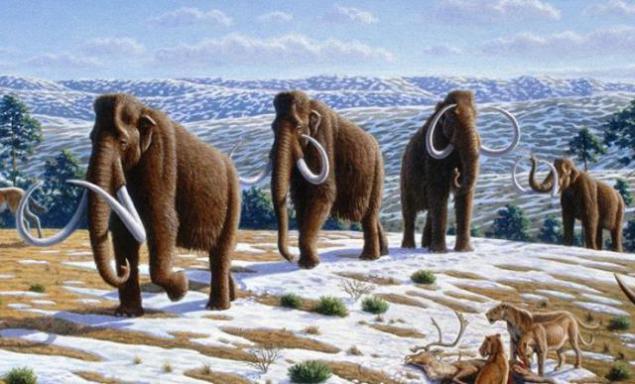
Dodo or Mauritian dodo
Mauritius dodo has long been considered a mythical bird whose existence was completely invented and actually it does not exist in nature. But after specially arranged to Mauritius expedition discovered the remains of a bird, the public had to accept the fact that there was a bird and become the cause of its destruction is the people.
Dodo lived in Mauritius for several centuries, it is not fear of their natural enemies, which did not exist on the island. That is why the flightless bird was - she just was not hiding from anyone.
For the first time we saw the bird in 1598 Dutch sailors, and literally 100 years it has been completely wiped out - tried themselves travelers and animals that were brought to Mauritius colonists. Still, think of yourself, how attractive for sailors had dinner with 20-pound birds, which are considered to be the closest relatives of modern pigeons.
Year of extinction: presumably 1681
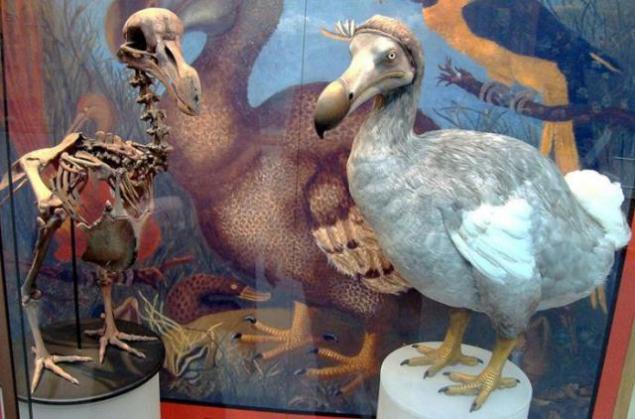
Manatees
Maritime and Steller's sea cow was discovered in 1741 by the expedition of Vitus Bering and received its name in honor of the doctor of the expedition Georg Steller, who was not too lazy to describe the sea cow from all sides, and it was his description is still considered the most complete.
Steller's sea cow lived off the coast of the Commander Islands, and has not only a low mobility, the huge size and the complete lack of fear of man, but also delicious meat. The latter was the reason that less than 30 years after its opening, the sea cow was completely wiped out.
Sailors ate its meat, fat cow was used for food and the lighting of the skins were making boats. In a word, they ate everything they could reach. This trapping and killing of sea cows were often unnecessarily cruel and senseless, "Most hunters simply throwing spears sea cow, and then allowed to float away, hoping that the animal would die and his body will make the shore».
Year of extinction: 1768
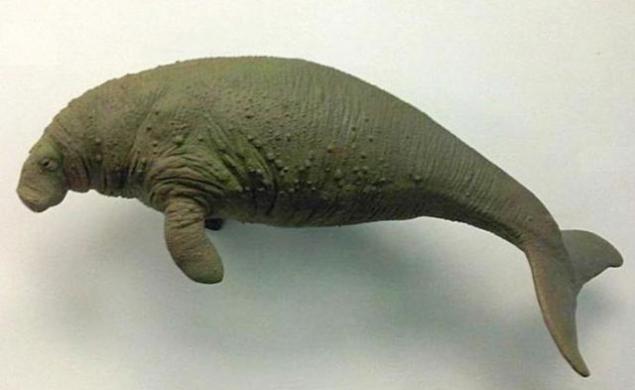
Passenger pigeon
Passenger pigeon to the beginning of the XIX century was one of the most common birds on the ground, its population numbered up to 5 billion individuals. However, this amount is not enough for the birds to the pigeons survived. Living on the territory of modern US and Canadian passenger pigeon were the subject of active hunting colonists arriving in America.
Reducing the number of pigeons took place more or less smooth pace until about 1870, then in less than 20 years, their number has decreased dramatically and the last just dove in the wild was seen in 1900. In captivity, passenger pigeon lasted right up to 1914, when the zoo in Cincinnati, died last bird named Martha.
Year extinction 1914
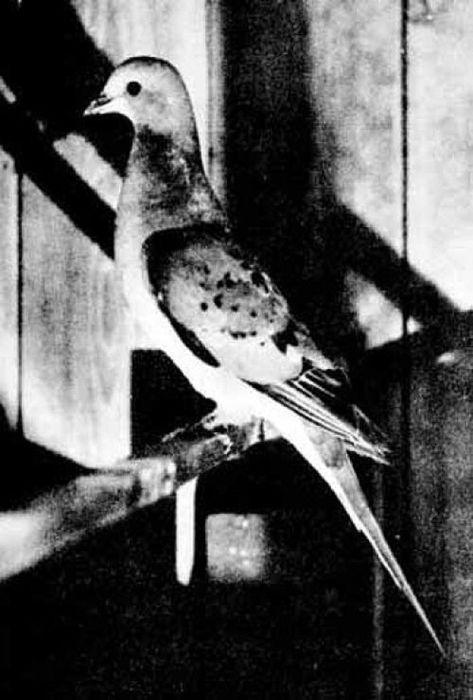
North African antelope cow
Cow antelope - largest antelope subfamily is found in Africa. There are several types of them, but particularly this kind virtually disappeared from the map of the Earth by the beginning of XX century. Hunting them was so active that the last few decades of its existence last individual cow antelope found only in really remote places several African countries is not completely extinct by the middle of the last century.
Year of extinction: 1954
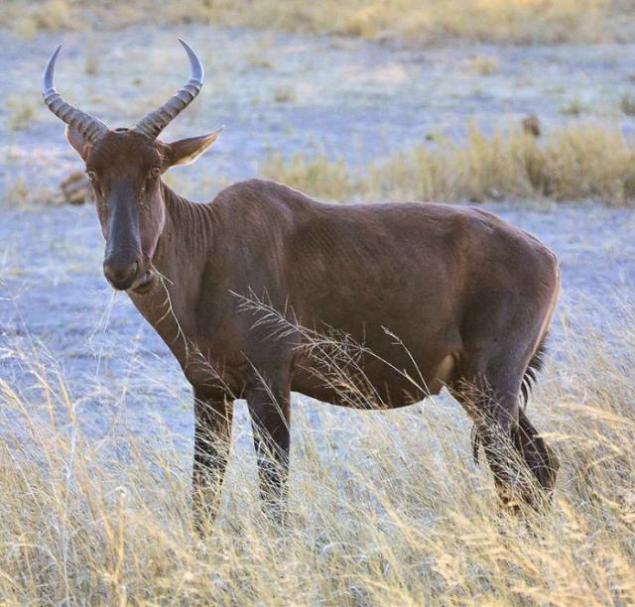
Javan tiger
Even in the XIX century Javanese tiger met throughout the island of Java and regularly plagued its inhabitants. Maybe it was one of the reasons for the active hunt for him, and maybe something else, but the fact remains that in 1950 living on the island there are only 20-25 individuals.
And half of these tigers inhabiting specially created reserve. But even that was not enough to save the population, and by 1970 their number was reduced to seven individuals. The exact time of the extinction of the Javan tiger remains unknown, but most likely, it happened in the mid-1970s.
From time to time there are reports that in Java once again saw the Javanese tiger or even a mother with several cubs, but there is no documentary evidence that the Tigers really are preserved in nature, no.
Year of extinction: about 1970
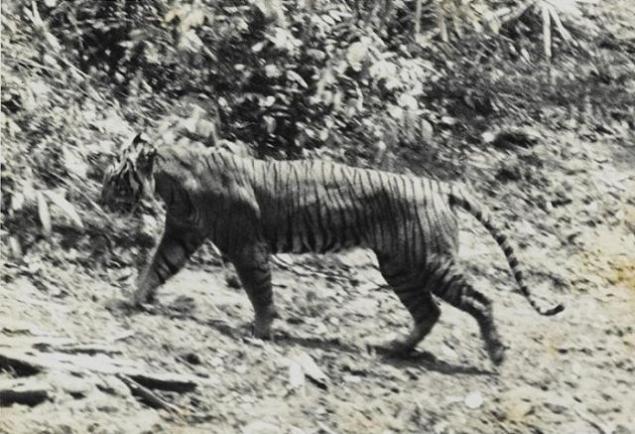
Zanzibar Leopard
Destruction of Zanzibar Leopard at the same time and it looks like and unlike the extermination of other species from our list. Leopard killed and killed deliberately and very active, announced on animals hunting and walked on them throughout the village. However, this was done not for the sake of its meat and hide and not in order to save the village and cattle from potential animal attacks. The fact that the population of Zanzibar archipelago was adamant that these leopards are associated with witches, the evil witch are specially bred and trained these animals to help themselves, and then send leopards do dirty deeds for them.
The campaign for the extermination of animals began in the second half of the 1960s, and after what some 30 years Zanzibar Leopard is almost gone in the wild. Scientists have begun to sound the alarm in the early 90-ies of the last century, but in a few years, the program of conservation of the species has been curtailed as a hopeless.
Year of extinction: 1990
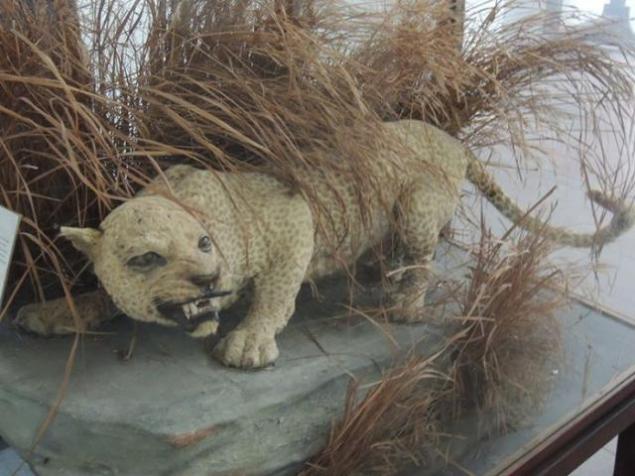
Pyrenean ibex
One of the four known species of the Spanish wild goat, which, unlike the others, was not lucky to survive until the present day. The last known representative of the species died completely absurd death - it crushed the fallen tree.
Scientists were able to take samples of his DNA, and they have attempted to create a clone of the ibex, but unfortunately, the cloned calf died shortly after birth due to various birth defects.
Year of extinction: about 2000
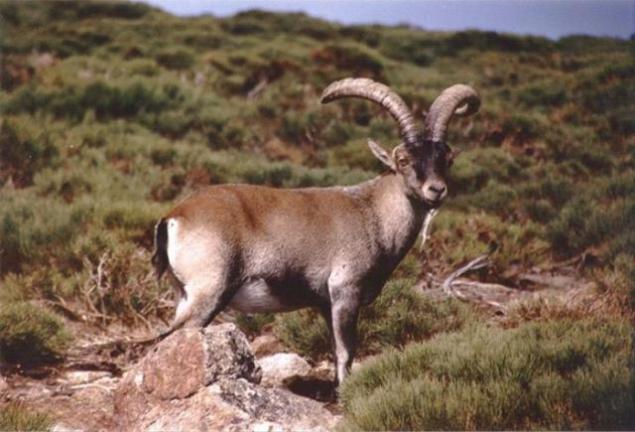
Western black rhino
This subspecies of black rhino was declared extinct just a couple of years ago. He became the victim of a regular hunting in the territory of their habitat in Cameroon. The most valuable for poachers considered rhino horn, used in Chinese medicine to treat many diseases.
Scientists are actively searching for the survivors of this species, since 2006. However, since five years of searching failed, the western black rhino was declared extinct. Under the threat of extinction and other species are the black rhino.
Year of extinction: 2011
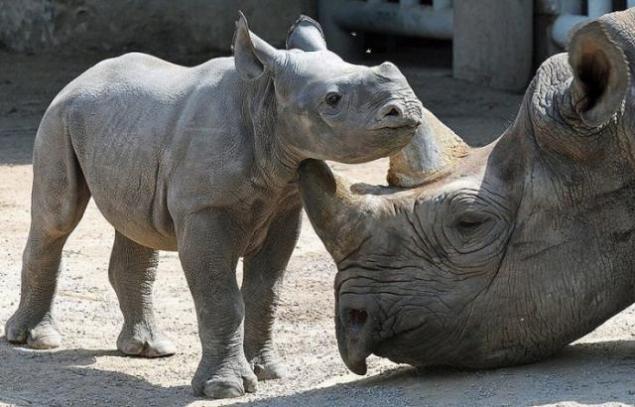
From

Tasmanian wolf
Tasmanian or marsupial wolf, also known as tilatsin, resided in the territory of mainland Australia and the island of New Guinea. The first of its habitat has undergone change after to New Guinea people were transported dingo. Last Thylacine ousted from his normal habitat, and today he was "moved" to live on the island of Tasmania.
Local Australian farmers considered it a potential threat to sheep and therefore mercilessly exterminating wolves, without attaching any importance to where they saw him and whether he is a threat to others.
"Many believe that the cruel and unjustified destruction of wolves could not lead to the extinction of a species, and blame it on some uncharted disease that supposedly wiped out the entire population tilatsinov" - says Thomas Prowse from the Australian University of Adelaide. < br /> However, scientists have for a long time and thoroughly studied this issue, using different models, and found that the destruction of the Tasmanian wolves are responsible solely man.
It is believed that the last Thylacine was killed May 13, 1930, and in 1936 in one of the Australia Zoo died of old age last Thylacine in captivity.
Year of extinction: 1936
Woolly Mammoth
It is believed that this type of mammoths first appeared in Siberia, about 300-250 thousand years ago, and gradually spread to Europe and North America. Dimensions mammoths were not quite so huge, according to most not too familiar with the history of the people: they were only a little more than modern elephants.
Mammoths lived group, led by the eldest female, and constantly moved from place to place as an adult mammoth require about 180 kg of food daily. What is - and this is obvious - does not imply marking time in one place.
Completely woolly mammoth disappeared about 10,000 years ago. Although there are many theories of why they became extinct (loss of genetic diversity, climate change, outbreak, etc.), advanced research increasingly inclined to believe that the final blow to this type caused mammoth was a human hand.
Time extinction: 10 000 years ago

Dodo or Mauritian dodo
Mauritius dodo has long been considered a mythical bird whose existence was completely invented and actually it does not exist in nature. But after specially arranged to Mauritius expedition discovered the remains of a bird, the public had to accept the fact that there was a bird and become the cause of its destruction is the people.
Dodo lived in Mauritius for several centuries, it is not fear of their natural enemies, which did not exist on the island. That is why the flightless bird was - she just was not hiding from anyone.
For the first time we saw the bird in 1598 Dutch sailors, and literally 100 years it has been completely wiped out - tried themselves travelers and animals that were brought to Mauritius colonists. Still, think of yourself, how attractive for sailors had dinner with 20-pound birds, which are considered to be the closest relatives of modern pigeons.
Year of extinction: presumably 1681

Manatees
Maritime and Steller's sea cow was discovered in 1741 by the expedition of Vitus Bering and received its name in honor of the doctor of the expedition Georg Steller, who was not too lazy to describe the sea cow from all sides, and it was his description is still considered the most complete.
Steller's sea cow lived off the coast of the Commander Islands, and has not only a low mobility, the huge size and the complete lack of fear of man, but also delicious meat. The latter was the reason that less than 30 years after its opening, the sea cow was completely wiped out.
Sailors ate its meat, fat cow was used for food and the lighting of the skins were making boats. In a word, they ate everything they could reach. This trapping and killing of sea cows were often unnecessarily cruel and senseless, "Most hunters simply throwing spears sea cow, and then allowed to float away, hoping that the animal would die and his body will make the shore».
Year of extinction: 1768

Passenger pigeon
Passenger pigeon to the beginning of the XIX century was one of the most common birds on the ground, its population numbered up to 5 billion individuals. However, this amount is not enough for the birds to the pigeons survived. Living on the territory of modern US and Canadian passenger pigeon were the subject of active hunting colonists arriving in America.
Reducing the number of pigeons took place more or less smooth pace until about 1870, then in less than 20 years, their number has decreased dramatically and the last just dove in the wild was seen in 1900. In captivity, passenger pigeon lasted right up to 1914, when the zoo in Cincinnati, died last bird named Martha.
Year extinction 1914

North African antelope cow
Cow antelope - largest antelope subfamily is found in Africa. There are several types of them, but particularly this kind virtually disappeared from the map of the Earth by the beginning of XX century. Hunting them was so active that the last few decades of its existence last individual cow antelope found only in really remote places several African countries is not completely extinct by the middle of the last century.
Year of extinction: 1954

Javan tiger
Even in the XIX century Javanese tiger met throughout the island of Java and regularly plagued its inhabitants. Maybe it was one of the reasons for the active hunt for him, and maybe something else, but the fact remains that in 1950 living on the island there are only 20-25 individuals.
And half of these tigers inhabiting specially created reserve. But even that was not enough to save the population, and by 1970 their number was reduced to seven individuals. The exact time of the extinction of the Javan tiger remains unknown, but most likely, it happened in the mid-1970s.
From time to time there are reports that in Java once again saw the Javanese tiger or even a mother with several cubs, but there is no documentary evidence that the Tigers really are preserved in nature, no.
Year of extinction: about 1970

Zanzibar Leopard
Destruction of Zanzibar Leopard at the same time and it looks like and unlike the extermination of other species from our list. Leopard killed and killed deliberately and very active, announced on animals hunting and walked on them throughout the village. However, this was done not for the sake of its meat and hide and not in order to save the village and cattle from potential animal attacks. The fact that the population of Zanzibar archipelago was adamant that these leopards are associated with witches, the evil witch are specially bred and trained these animals to help themselves, and then send leopards do dirty deeds for them.
The campaign for the extermination of animals began in the second half of the 1960s, and after what some 30 years Zanzibar Leopard is almost gone in the wild. Scientists have begun to sound the alarm in the early 90-ies of the last century, but in a few years, the program of conservation of the species has been curtailed as a hopeless.
Year of extinction: 1990

Pyrenean ibex
One of the four known species of the Spanish wild goat, which, unlike the others, was not lucky to survive until the present day. The last known representative of the species died completely absurd death - it crushed the fallen tree.
Scientists were able to take samples of his DNA, and they have attempted to create a clone of the ibex, but unfortunately, the cloned calf died shortly after birth due to various birth defects.
Year of extinction: about 2000

Western black rhino
This subspecies of black rhino was declared extinct just a couple of years ago. He became the victim of a regular hunting in the territory of their habitat in Cameroon. The most valuable for poachers considered rhino horn, used in Chinese medicine to treat many diseases.
Scientists are actively searching for the survivors of this species, since 2006. However, since five years of searching failed, the western black rhino was declared extinct. Under the threat of extinction and other species are the black rhino.
Year of extinction: 2011

From







